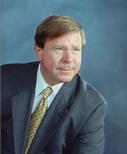I believe we are on the brink of a perfect financial storm, which is why investors are increasingly seeking alternatives to conventional investing strategies built on stocks and bonds.
U.S. equities have reached new highs, skyrocketing nearly 100% since May 2009, while bond yields remain near historic lows. Stir in the federal government’s humongous budget deficit and the imminent tapering of the Federal Reserve’s quantitative easing program and I think we’re looking at one rocky future.
No wonder that it’s a bull market for investment alternatives, especially hedge funds. The demand for these products is sure to increase substantially in the years ahead as the crowd grapples with the harsh reality of the future. But in intelligently assessing hedge funds, all the usual caveats still apply, namely: separating the alpha wheat from beta’s chaff is crucial. “Alpha” is the value added by brainwork, or accurate manager decisions. “Beta” is the manager’s natural habitat, the collection of exposures to economic and broad market factors.
Newly relaxed hedge fund advertising rules could entice the unwary. Beware the hype.
Here’s where I see hedge fund evaluation going in the years to come.
Hedge fund evaluation
We shouldn’t pay much for exotic hedge fund betas (risk profiles) because they are readily manufactured, but we should put a premium on superior human intellect, because it is very rare. We can know the difference if we abandon simple-minded performance benchmarks like peer groups and indexes, and replace them with smart science.
Ten years ago, Dr. Harry Kat proved the deficiencies of hedge fund peer groups and indexes in his paper 10 Things That Investors Should Know About Peer Groups. Unfortunately Kat’s message has been largely ignored.
There is a better way. Disruptive innovation will elevate our comprehension and contentment. Everybody will win – or at least everybody who recognizes that prudently choosing hedge funds demands a higher standard. The first step is recognizing that the old, traditional methods are as out of place with hedge funds as Klingons are with Starfleet Command. The due diligence charade is over.
Hedge funds, after all, are unique. Products in the same strategy are usually galaxies apart when it comes to management details. Uniqueness is the main attraction of hedge funds, of course, and it’s also the primary reason why a robust due diligence process in this corner is essential. The definition of unique is “without peers,” which means that a distinctive hedge fund can’t be squeezed into an artificially defined group. “Unique” and “peer” simply do not play well together. Hedge fund managers win or lose against peer groups because they are different, not because they are better or worse than quasi-comparable strategies.
Peering into the future: the video
It’s this uniqueness (heterogeneity) that will lead us in the future to the science of evaluating hedge funds. We’ve been working in this area for some time and now created a hedge fund evaluation video to convey our view that hypothesis testing and cyberclones will revolutionize due diligence.
No one wants or needs to pay for exotic betas that can be reverse-engineered (and replicated). In sharp contrast, everyone is willing to pay for that critical factor that can’t be synthesized: superior human intelligence and wisdom that engender profitable decisions by way of savvy investment choices.
The video shows how we’ll pay a fair price for brainwork, commensurate with the level of brainwork rather than the typical “2 and 20” fee. But first we’ll need a robust model for deciding who’s truly delivering the equivalent of Oscar-winning performances in the hedge fund universe.
All opinions included in this material are as of August 31, 2013 and are subject to change. The opinions and views expressed herein are of the portfolio manager and may differ from other managers, or the firm as a whole. All investments involve risk (the amount of which may vary significantly) and investment recommendations will not always be profitable. Past performance does not guarantee future results.
Peer into the Future of Hedge Fund Evaluation: Send in the Clones from Ron Surz on Vimeo.



